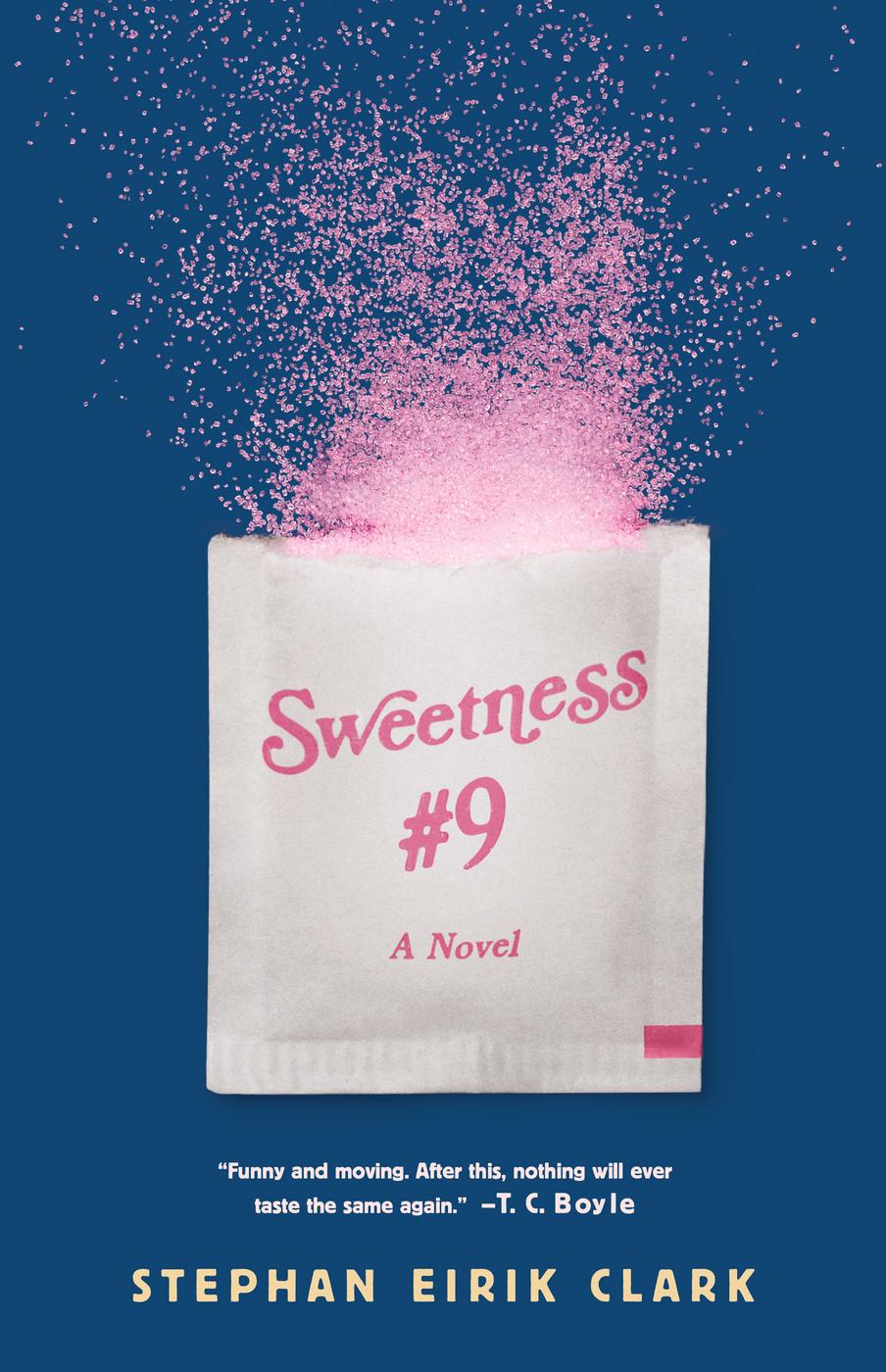
Sweetness #9
A Novel
کتاب های مرتبط
- اطلاعات
- نقد و بررسی
- دیدگاه کاربران
نقد و بررسی

April 21, 2014
Artificial sugar substitutes, chemically crafted flavor enhancers, and unnatural food colorings are trapping Americans in a self-destructive cycle of addiction, suggests Clark in his first novel, a hyperironic, hyperworrisome account of one man’s journey through the processed food industry. The horror begins in New Jersey in 1973, when recent Rutgers food science program graduate David Leveraux goes to work for corporate giant Goldstein, Olivetti and Dark. His first assignment is testing Sweetness #9, a product in development, on rats. The product is eventually approved and put on the market, but as “the Nine” catches on (it’s 180 times as sweet as sugar at a fraction of the cost), lab rats, monkeys, the Leveraux family, political leaders in Washington, and the general American public all show signs of depression, anxiety, dissatisfaction, and self-destruction. David eventually finds another job, but hides his past dealings with Sweetness #9 from his vegan daughter, as well as his fast-food-enthusiast son, until the truth must be told. Clark’s storytelling skill lends credibility to elements like David’s wife running off to Ukraine in search of serenity and a trimmer waistline with a 300-pound life coach/nutritionist, and Sweetness #9 tracing its origins to Hitler’s bunker. The energetic mixture of laughter and revulsion, routine and invention, outrage and dismay, fact and fiction, skewer a food industry that provides neither food nor sustenance and damages us in ways we are just beginning to fathom.

July 1, 2014
A social satire raises spooky questions about food additives."The brain is like the Amazon, Leveraux. Ten steps in and we're lost." So flavorist-in-training David Leveraux is told by his boss when he reveals his worries about the obesity and depression of the animals on whom he's testing a new artificial sweetener, Sweetness #9. The boss explains that as these things go, cancer is easy. Other side effects are "like a scuttling sound on the jungle floor, something that shakes a bush or runs up a tree just moments before you can identify it." That observation is the heart of the first novel by Clark (he's also written a story collection, Vladimir's Moustache, 2012), which will make you nervous about what you eat. Shortly after this conversation, Leveraux is fired and committed to an institution. Then the novel leapfrogs from 1973 to 1998. Leveraux is out of the bin, back in the business and patriarch of a family raised on fake food. Things are not going well: His wife has weight problems, his son has stopped using verbs, and his angry, rebellious daughter is researching an article on food additives. In fact, every character may or may not be showing the depredations of a chemically based diet, and the problem may have originated with experiments in Hitler's bunker. While the plot goes off the deep end, Clark's wit never flags. Of his son Ernest, Leveraux observes, "Churchill once spoke of Russia as a riddle wrapped in a mystery inside an enigma;...I might describe [Ernest] as a corn dog wrapped inside a slice of pizza stuffed in a Hot Pocket." Of a rival company, Tanko-Shinju: "I've heard [it] translated both as 'pink pearl' and 'two men commit suicide in a coal mine.' "Clever writing balances out the conspiracy theories, but the fictional treatment of this issue leaves readers wondering about the facts.
COPYRIGHT(2014) Kirkus Reviews, ALL RIGHTS RESERVED.

May 1, 2014
In this good-natured satire of America's love of the artificial, nice guy David Leveraux is the straight man who got top honors in flavor science with his thesis on the "Biophysics of Brie." He gets fired from his first job at an animal-testing lab after he notices disturbing behavior in the animals that are fed a sugar substitute, Sweetness #9. Unable to find work, David checks himself into a state mental institution. Not until he is rescued from the asylum by Ernst Eberhardt, Hitler's flavorist during the waning days of World War II, does he find success. David moves back in with wife Betty, and they have two lovely children. All is well until the family starts exhibiting some familiar, unsettling behavior. Is the world's most popular artificial sweetener making his wife fat? Is his son addicted to Red Dye No. 40? Will his daughter get her hands on a poorly translated Albanian research report that blows the lid off Sweetness #9? VERDICT This debut novel is a hilarious take down of an industry more interested in getting us to buy its products than in selling us good food. Essential for fans of Christopher Buckley's Thank You for Smoking.--Pamela Mann, St. Mary's Coll. Lib., MD
Copyright 2014 Library Journal, LLC Used with permission.

August 1, 2014
David Leveraux is an ambitious young flavor scientist (or flavorist) in 1973 when he is hired to conduct safety testing on Sweetness #9, a new artificial sweetener. To his dismay, his lab rats are exhibiting lethargy, compulsion to overeat, and general dissatisfaction with life. Leveraux's company argues (before firing him) that he is simply observing universal afflictions, traits that comprise the American Condition. By 1998, Sweetness #9 is ubiquitous in consumer products from diet soda to toothpaste. Everywhere Leveraux looks he sees possible symptoms of Sweetness #9 poisoning, including in his aerobics-obsessed wife, his sullen teenage daughter, and his video-gamer son (who has stopped using verbs). When terrorists start bombing the packaged-food aisles of grocery stores and Leveraux's colleagues begin arming themselves for Y2K, could Sweetness #9 be to blame? He sets out to learn the truth and heal his family in the process. Part suburban family drama, part corporate thriller, Clark's first novel offers a hyperreal American fable that is tuned to our cultural anxieties about food, chemicals, and authenticity.(Reprinted with permission of Booklist, copyright 2014, American Library Association.)

























دیدگاه کاربران